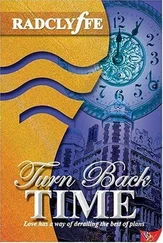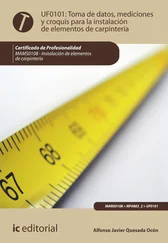But even stranger than the declarations made in situ by the matrimonial pair was the mise-en-scène of the death that Graham offered at the end of his aforementioned book, The Life and Last Words of Wilfrid Ewart , after painstakingly recalling and recounting all that the two men of the trio said and did on that 31st of December which for one of them would become the final day of all years. They separated at about 11:30 p.m., strange that they didn’t stay together only half an hour longer to celebrate the arrival of 1923 and raise a glass to the future. “Then he went to his hotel and we went to ours,” says Graham in his book, “and the pandemonium increased till midnight, when it burst into hell let loose.” And he adds with total certainty, as if he had been peering through the keyhole at Ewart’s room or there inside it, neither supposing nor conjecturing but simply stating, “Wilfrid went straight to his hotel, undressed, washed, got into his pyjamas, put a blade into his safety razor, and evidently had intended to have a shave before going to bed, when he had been attracted by some new happening down in the street below. He went to the window, and at the same moment a spent bullet went right through his eye and he fell back into the room a dead man.” One more stroke of bad luck, or chance or fate or destiny if you like: a “spent bullet” or a cold bullet or a dead bullet is a bullet that has begun to lose angle and velocity in its trajectory. I won’t be the one to explain how it’s possible that a bullet that didn’t leave an exit wound but did remain lodged at the back of a skull had managed to “spend” itself or “grow cold” in its flight, for I know nothing about ballistics or obliqueness and less still about the science of postmortem examination. But that is what Graham wrote, “a spent bullet,” and what another writer, Hugh Cecil picked up and repeated, seventy-one years later.
True, the detail doesn’t much matter; in the end almost nothing about this death is explicable, including, for example, the fact that the Mexican newspapers, in all their great attention to detail, didn’t mention the corpse’s pyjamas. And it seems a major narrative licence on Graham’s part — if that was what it was, a licence — to decide that Ewart washed first and only then put a new blade in his safety razor, and did so, what’s more, in the absurd intention of going to bed freshly shaven, an impractical measure if ever there was, since the beard will grow back during the night and the interested party will arise in the morning needing, in all likelihood, another shave; it makes very little sense to shave at the end of the day if no nocturnal appointment awaits and there will be no one to appreciate the smoothness of your cheeks. It is no less strange that, according to Graham, Ewart fell “back into the room a dead man,” for as this phrase depicts the scene, there was no longer either balcony or armchair to receive the plummeting body. And though this could be understood merely as an attempt to dramatize what is already dramatic, it is equally impossible for Graham to have known that the bullet passed through his friend’s eye “at the very moment” he went out to the balcony, and not, for example, after he had lingered there for some time, admiring the pandemonium. In any case, Graham doesn’t do much dramatizing of his narrative, far less, of course, than its impromptu Mexican chroniclers.
Perhaps that’s why he didn’t manage to instill much of a current of predestination into his account of that last day, or maybe that was simple literary ineptitude. Anyway, in his story, he does not explain why Ewart had yet to move out of the hotel by the night of the 31st although on the previous day, the 30th of December, that had been his intention, frustrated only by a long delay in getting the bill. He does, on the other hand, comment that Ewart had twice changed rooms at the Hotel Isabel, and therefore had never actually managed to sleep in the third room, which housed his death (the bed still made up — that detail did not escape Señora Trejo de Estrevelt or the journalists who overlooked the pyjamas, if there were indeed pyjamas). It would have been so easy for this death never to have happened, and Graham did not resist the temptation to enumerate — though concisely and without getting carried away — the linked factors contributing to the misadventure: “It was almost as if some hidden force were guiding him into position for death. He was in Mexico City with an unused out-of-date ticket to New Orleans. Thus in the first place he had been led nearer fate; a stranger had sent him to an unlikely hotel, and he went nearer still. And in the hotel he shifted about till he found the fatal attic where he died. Had we seen the year out in the Square of the great pyramid, perhaps all had been well. Who can tell?”
Yes, who can tell, and what does it matter, all these ifs, all these conditionals with which we pepper our whole lives to explain them to ourselves, to justify and confirm them, and so imagine that they could have been different, or that they couldn’t have been; lamenting adversity all the more and rejoicing all the more in good fortune, yet both are only consolations or accolades or regrets or rhetorical vexations, serving only to keep us from entirely and immediately losing sight of what time has discarded, and time does nothing but discard. It would have been so easy for this death not to have happened, but in reality it would have been so easy for nothing to have happened, nothing that takes place and occurs, absolutely nothing, beginning with our birth. And so what if I hadn’t been born, I said that earlier. There are too many who are born and it’s as if they’d never arrived in or passed through the world; memory or some record remains of so few and there are so many who quickly say good-bye and fade away as if the earth lacked the time to witness their eagerness and their failures or achievements, or as if there were some urgent need to be rid of their breath and their still incipient wills, the effort made in vain, the diminutive footsteps that leave no trace or only in the sharp-edged memory of someone who taught those feet to take steps and made the mistake or had the audacity to go to the effort of gestating and imagining a face, and hoping: as if they were a costly and superfluous luxury that life expels at once like a breath, not even allowed to be put to the test because neither history nor time claims or seeks them. And so what, if no one had ever been born. No one would ever have died then, either, and there would be none of these stories incessantly told, full of horror, random chance and affronts, and temporary salvation and final doom.
It would also have been so easy for George W. Steabban not to have died in that hail of bullets, from a shot to the forehead, only two days later in the very same place, and all the more so since he had already had one brush with his fate and escaped it, according to Sergio G.R.: after his accidental death in Mexico at the hands of Constantino or Leovigildo, someone remembered that this merchant in the meat and sausage industry had fought in the Boer War and had subsequently been a food inspector during the war of 814, Ewart’s war. “Not long before that war, in Buenos Aires on a business trip,” says my Mexican correspondent in his article, “he was ‘confused’ with someone else and shot at and beaten, but his strong body managed to survive the attack.” And he adds, speaking of his actual death or final doom: “Steabben must have had enormous strength: his death throes lasted twenty-four hours.” It would have been so easy for nothing to have happened.
Nothing in Wilfrid Ewart’s final day was particularly ominous or worthy of mention, though Graham took care to mention everything. The soon-to-be-dead man joined his married friends around noon, wearing a new shirt he had bought in honor of the day (let’s hope he had also bought a complete change of clothes and was able to move about feeling clean and comfortable during his final hours). As a special treat, he read the Grahams a few lines he had jotted down in his notebook, and was particularly proud of what he had written about the dogs known as Chihuahuas, Graham informs us, without any displeasure in his tone. In the streetcar on the way to San Angel Ewart informed them that he had sent a cable to New Orleans to claim his baggage and, at the telegraph office, had become friendly with an English employee named Hollands, who lived with his wife in Chapultepec and had promised to find him a pleasant place to live there. He was going to have lunch with them the next day and it would have been so easy for him to have been present at that New Year’s Day lunch. They ate in the celebrated courtyard of an inn where he had eaten before, and Graham noticed that his friend had lost most of his appetite; he refused the turkey and the more solid dishes and ate only strawberries and cream, an interminable serving, or rather one serving after another, cream and strawberries and strawberries and cream the entire time. Ewart told them a number of things over the course of the meal. He had decided that he did not like America, that is, the United States. Nevertheless he would go back and spend two or three years there before reestablishing himself in London, after which he would never return to the former colonies. He had discovered that his political bent was conservative, after having had liberal and even radical leanings. He doubted he would go on writing novels, at that moment he was more attracted by the idea of involving himself in foreign politics, he thought of interviewing President Obregón and General Enriquez and publishing articles on the current Mexican situation, and then writing a book on relations between the United States and Canada, a subject, as I said, every bit as incandescent then as it is now. He couldn’t understand why the United States hadn’t yet annexed Mexico (it’s probably for the best that he didn’t write his articles; they might have been misunderstood), and his only argument in favor of an independent Mexico was that it was different and perhaps worth preserving in its difference (he doesn’t seem to have had a very brilliant day, he certainly couldn’t have imagined that it would be the day of his final farewell to the world, and I don’t know if Graham acted as a friend by relating it all in detail).
Читать дальше












